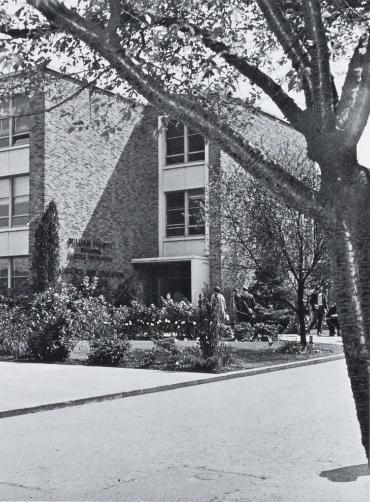Albers Mission, Vision, Values, and History
Albers' mission, vision, and values drive everything that we do in educating and shaping the next generation of business leaders, engaging with our community, and changing the world through business.
/0x16:1130x737/prod01/channel_34/media/seattle-university/albers-school-of-business/about-albers/images/CommencementUndergraduate2014_cjk_088_Albers-School-of-Business--Economics-1130X753.jpg)
Our Mission
The Albers School develops ethical, inclusive, and innovative business leaders who lead and manage for the good of their organizations, society, and the planet.
Our Vision
We will be recognized for educating business leaders of integrity who aspire to build thriving organizations that consider people and planet in all decisions.
Our Shared Values
- Honesty and integrity— in everything we do
- Academic excellence—in teaching, scholarship, and service
- Inclusiveness and collegiality—fostering a welcoming and open environment, treating others with respect, and collaborating toward a shared vision
- Jesuit mission—growth in persons, education for leadership, and service and commitment to justice
Signatory Member of UNPRME
The Albers School of Business and Economics has been a Signatory Member of the United Nations Principles for Responsible Management Education (PRME) since 2010.
Participating in the initiative requires that Albers adopts the six Principles of Responsible Management Education:
Principle 1
Purpose: We will develop the capabilities of students to be future generators of sustainable value for business and society at large and to work for an inclusive and sustainable global economy.
Principle 2
Values: We will incorporate into our academic activities and curricula the values of global social responsibility as portrayed in international initiatives such as the United Nations Global Compact.
Principle 3
Method: We will create educational frameworks, materials, processes and environments that enable effective learning experiences for responsible leadership.
Principle 4
Research: We will engage in conceptual and empirical research that advances our understanding about the role, dynamics, and impact of corporations in the creation of sustainable social, environmental and economic value.
Principle 5
Partnership: We will interact with managers of business corporations to extend our knowledge of their challenges in meeting social and environmental responsibilities and to explore jointly effective approaches to meeting these challenges.
Principle 6
Dialogue: We will facilitate and support dialog and debate among educators, business, government, consumers, media, civil society organizations and other interested groups and stakeholders on critical issues related to global social responsibility and sustainability.
We understand that our own organizational practices should serve as example of the values and attitudes we convey to our students.
History
 The first business degrees were granted by Seattle College in 1937 and in 1947 the School of Commerce and Finance was established. The undergraduate degree program was accredited by the Association to Advance Collegiate Schools of Business (AACSB) in 1965. The MBA program began in 1967 and, one year later, the name of the school was changed to the School of Business.
The first business degrees were granted by Seattle College in 1937 and in 1947 the School of Commerce and Finance was established. The undergraduate degree program was accredited by the Association to Advance Collegiate Schools of Business (AACSB) in 1965. The MBA program began in 1967 and, one year later, the name of the school was changed to the School of Business.
In 1976, the school was renamed the Albers School of Business, to honor Eva Albers, a generous donor to Seattle University, and her husband George, a local business pioneer. The naming was in recognition of their support for the university and their work in the community.
Later, their daughter, Genevieve Albers, who took an accounting course in the School of Commerce and Finance, bestowed a gift of $8.4 million in 2002.
In 1980, the MBA program was accredited by AACSB. In 1990, the school's name was changed to the Albers School of Business and Economics.
Photo of Pigott Building in 1964 courtesy of Lemieux Library.